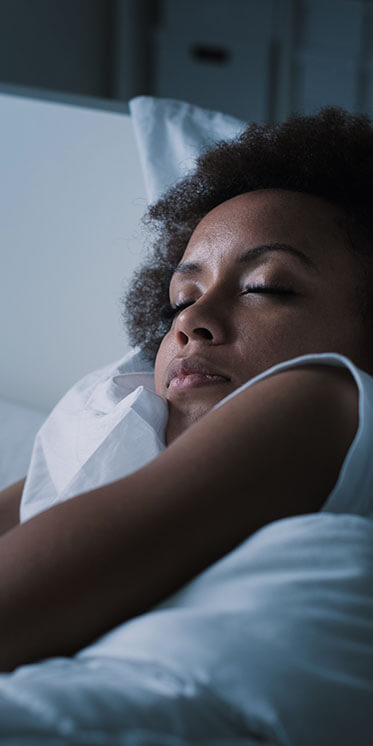Can poor sleep make me sick?

We don’t know why we sleep but we know we need sleep to survive. That's how important – and confusing – sleep is, and why sleep matters a lot when talking about our health.
Sleep also matters for your immune system as it is a time when your body has a chance to recover and reduce the levels on inflammation in the body. Unfortunately, both the science of sleep and the immune system are very complex and there is much we don't understand about both areas.
However, we do know the following.
Also check out our guide to how diet, exercise and lifestyle changes can improve your immune system.
Inflammation confusion
Inflammation is a part of the immune system and helps heal your body when something is wrong. If you stub your toe and it goes red, that's inflammation. But you also have inflammation inside your body, in cells and tissue. If an unknown pathogen enters the body, inflammation can help get rid of it.
So inflammation in itself isn't bad but it becomes problematic if it is chronic, i.e. lasts for more than a few days. This means your immune system is always on alert and never gets a chance to relax. There are several ways to lower inflammation in the body, like exercise, certain foods, and sleep.
Need for sleep
The average adult needs between 7 and 9 hours of sleep every night. Our need for sleep is regulated by our circadian rhythms which release sleep hormones that make you tired when it's time to sleep.
If we interrupt these rhythms too much and over too long a time, our health suffers. In fact, a single night of no or poor sleep can increase inflammation in the body. Although twisting and turning in the sheets for a single night isn't that much of a problem, it can become a health risk if you often don’t get enough sleep.
The immune system is regulated by the same circadian rhythms and when these are interrupted our immune response also suffers.
The best way to keep your circadian rhythms in check is to maintain a regular sleep routine: go to bed at the same time every night and get up at the same time every morning – and don't deviate too much from this routine on the weekends.
But can it make me sick?
A lack of sleep can make you more prone to a pathogenic infection (think virus, bacteria or fungus) and make it harder to recover from this infection. So, yes, a lack of sleep can make you sick.
While you are sleeping the body restores the immune system and lowers inflammation. If you don't get enough sleep, the number of infection-fighting cells and antibodies in your body may be reduced which makes it more likely you get sick.
Long-term lack of sleep is also connected to other health conditions, like obesity, Type 2 diabetes, and cardiovascular disease.
Simple tips to sleep better
Maintain a regular sleep routine: As mentioned, going to bed at the same time each night and waking up at the same time each morning helps keep your circadian rhythms in check.
Don't drink caffeine after noon: Tough one, we know, but the half-life of caffeine (I.e. how long it takes the body to get rid of half the caffeine in your system) is about 5 hours. If you have a coffee at midday, you'll still have the effects of half a cup of coffee at 5pm.
Limit alcohol intake and tobacco use: A glass of wine may make you feel drowsy but having alcohol in your system while you sleep makes for poor quality sleep. Tobacco use is also linked to less restful sleep.
